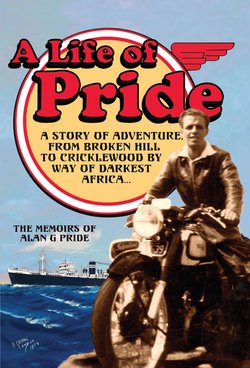Читать книгу A Life of Pride - Alan G Pride - Страница 26
На сайте Литреса книга снята с продажи.
Chapter 18
Family in Cornwall
ОглавлениеIn February I visited Mum’s Cornish relatives at Sennen Cove, down near Land’s End, for the first time. Mum had never been to England and I took lots of photos for her: the stone house, ‘Tresgillian’, which her grandfather had built and in which her cousin William James Chappell still lived; the 1400-year-old church nearby, the ancient village, and the family. Her other cousin, John ‘Chippy’ Chappell – so called because he’d been a ship’s carpenter – and his wife, Janey, were really excited to see me and made me feel welcome. Their home, Rossitter House, was only 40 metres from the 'First and Last Hotel ' and less than a kilometre from the southern tip of Land's End. Of course, I had to climb down to the actual end of Lands' End, taking care not to be swept away by the huge tide.
Me at the Last House at Land’s End
Chippy and his family at Tresgillian
Chippy on the way to Land’s End.
Janey cooked pasties while I was there, and I was pleased to write to Mum that they were much the same as the recipe I’d grown up with.
Chippy had sailed around the world 34 times over the course of his working life! His part of the family had lost contact with ours sometime after Mums' father, James Barnes, emigrated from Cornwall in 1885.(James was the brother of Chippy's mother, Emily.) They reconnected when Chippy went for a haircut in Port Adelaide in the '30's or early '40's and somehow came upon them or their address. He then visited them in Adelaide, but did not have time to get up to Broken Hill, much to his regret.
I thought I’d like to go to sea and he said he’d help me get a job. His old captain was now a P&O superintendent and could put in a word for me. He forbade me to go to the North Atlantic in winter – too dangerous, he said.
I spent five days in Cornwall, walking and catching buses to sightsee and visit relatives, of which there were many along the coast. Our forebears had been tin miners, labourers, seamstresses and shell-fishermen, many of them illiterate and poor, hence the emigration of some to Australia, and others to New Zealand in the 1800s, in the hope of improving their lot.
Altogether, the Cornish relatives didn’t want me to leave, but I had to go back to work. From beautiful, sunny Cornwall to sleet and snow in the big smoke. (While having a pasty for lunch in a St Ives café, I’d heard of the death of King George VI, and I later stood in the freezing London sleet to see his body brought from Sandringham to the Houses of Parliament – a simple but impressive procession.)
Still a tourist, I took the opportunity to stand under Big Ben before going back through the snow to my flat.
